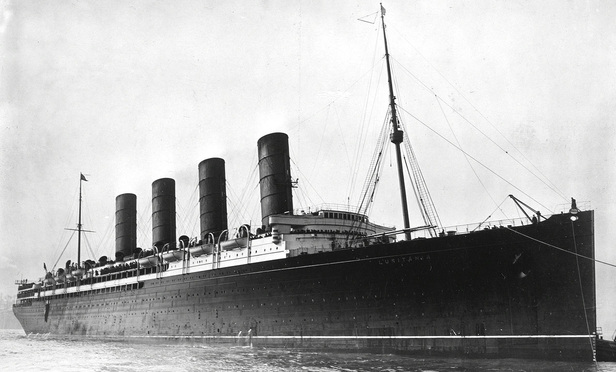One hundred years ago, the R.M.S. Lusitania, a Cunard liner en route from New York to Liverpool was sunk by a German U-Boat. It was attacked off the south coast of Ireland in the afternoon of May 7, 1915; a victim of Germany’s policy of attacking British-bound commerce without warning. Of the 1,962 passengers, 1,201 were killed. One hundred twenty eight were American.1
This did not instantly draw the U.S. into World War I. It remained neutral until April 6, 1917. The actual trigger was the leaked “Zimmerman Telegram”—exposing Germany’s bizarre bid to ally with Mexico and attack Texas, Arizona and New Mexico2—but the sinking loomed large: when seeking a declaration of war, President Woodrow Wilson decried the “reckless and lawless submarine warfare adopted now without disguise by the Imperial German Government,” as well as the “American lives taken” by it.3
This content has been archived. It is available through our partners, LexisNexis® and Bloomberg Law.
To view this content, please continue to their sites.
Not a Lexis Subscriber?
Subscribe Now
Not a Bloomberg Law Subscriber?
Subscribe Now
LexisNexis® and Bloomberg Law are third party online distributors of the broad collection of current and archived versions of ALM's legal news publications. LexisNexis® and Bloomberg Law customers are able to access and use ALM's content, including content from the National Law Journal, The American Lawyer, Legaltech News, The New York Law Journal, and Corporate Counsel, as well as other sources of legal information.
For questions call 1-877-256-2472 or contact us at [email protected]



